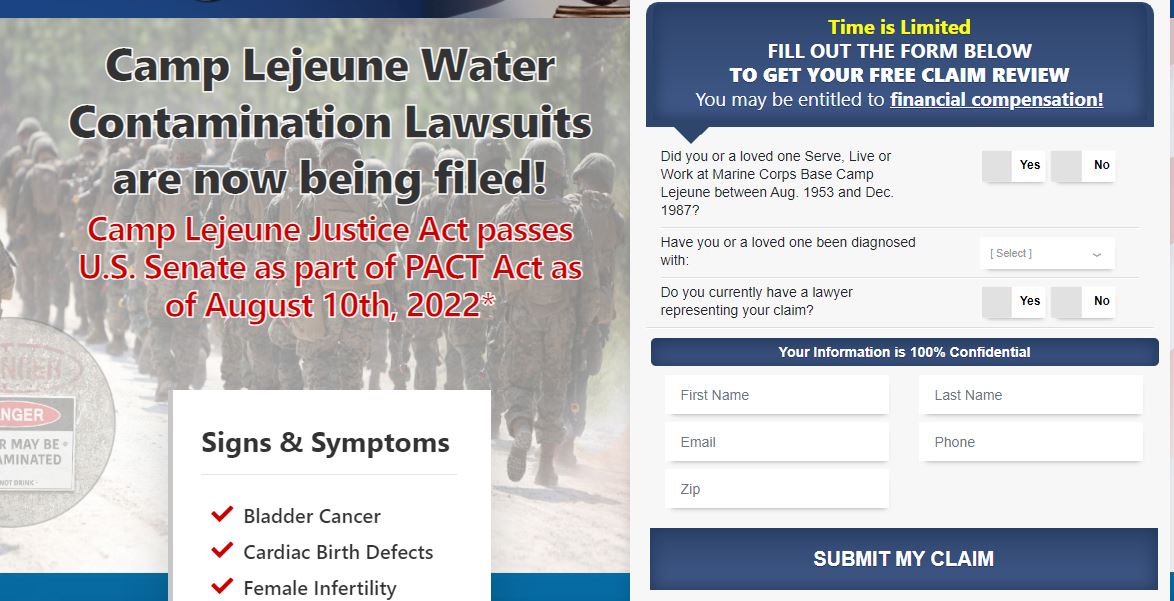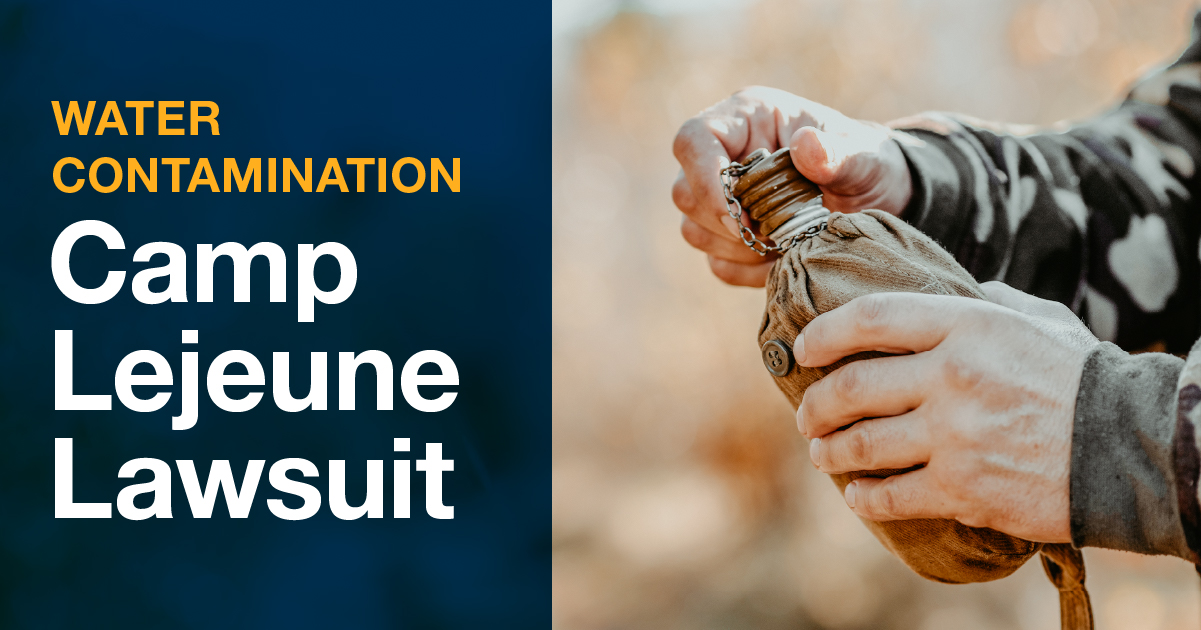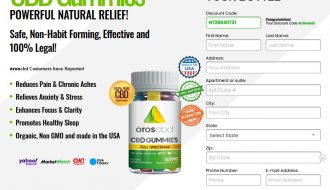The Camp Lejeune Water Contamination Lawsuit refers to a legal case involving thousands of former United States Marine Corps (USMC) service members and their families who were exposed to toxic chemicals within the drinking water at Camp Lejeune, a Marine Corps base in North Carolina.
Between the 1950s and 1980s, the drinking water at Camp Lejeune was contaminated with varied chemicals, as well as trichloroethylene (TCE), perchloroethylene (PCE), benzene, and vinyl chloride. These chemicals are known to cause serious health issues, as well as cancer, birth defects, and neurological disorders.
The USMC didn’t disclose the contamination to its personnel or their families until 1985, and it wasn’t until the 1990s that the total extent of the contamination was revealed. Since then, thousands of former Camp Lejeune residents have filed lawsuits against the USMC and the businesses accountable for the contamination, seeking compensation for their injuries and medical expenses.
In 2012, President Barack Obama signed into law the Honoring America’s Veterans and Caring for Camp Lejeune Families Act, which provides healthcare to veterans and their families who were laid low by the contaminated water at Camp Lejeune. However, the Act did not provide compensation for those affected, and many lawsuits are still ongoing.

Camp Lejeune Justice Act:
The Camp Lejeune Justice Act could be a proposed bill that aims to supply healthcare and compensation to those stricken by the water contamination at Camp Lejeune, a US Marine Corps base in North Carolina. The bill was first introduced in Congress in 2010 and has been reintroduced in subsequent years.
The Act would need the Department of Veterans Affairs to produce healthcare for veterans and their families who were exposed to the contaminated water at Camp Lejeune. It would conjointly establish a presumptive service association for bound medical conditions related to exposure to the contaminants, making it easier for affected individuals to get incapacity compensation and healthcare edges.
Likewise, the Act would offer funding for medical analysis into the health effects of the contaminated water, in addition, to support for community outreach and education efforts.
The Camp Lejeune Justice Act has gained bipartisan support in Congress, however, it’s not nonetheless been passed into law. Those affected by the contamination and their advocates still push for the bill’s passage, citing the necessity for healthcare and compensation for those that were exposed to the toxic chemicals at Camp Lejeune.
Finding a Lawyer For Water Contamination Lawsuits:
If you or someone you know has been affected by water contamination and is considering legal action, here are some steps you can take to search out a lawyer:
- Analysis: Start by researching attorneys who focus on water contamination lawsuits. Look for lawyers who have expertise in environmental law, toxic torts, and personal injury cases. Check their websites, read their bios, and look for client reviews.
- Referrals: Ask for referrals from friends, family members, or colleagues who have known about a similar situation. They may be able to suggest a lawyer who helped them with their case.
- Bar Association: Contact your state’s bar association for a referral. Many state bar associations have referral services that may connect you with attorneys who focus on your specific legal issue.
- Net Searches: Conduct a web exploration for water contamination lawyers in your area. Use specific keywords, like “water contamination lawyer” or “environmental law firm.”
- Consultation: Once you have a list of potential lawyers, schedule a consultation. During the consultation, ask about their expertise with water contamination cases, their fee structure, and their approach to handling your case. It’s necessary to seek out a lawyer who you’re feeling comfy with and who you believe has your best interests in mind.
Remember, deadlines, called statutes of limitations, apply to filing a lawsuit. Thus, if you suspect you have a case, it’s essential to confer with an attorney when doable.
Federal Tort Claims:
The Federal Tort Claims Act (FTCA) could be a federal law that allows individuals to sue the United States government for damages resulting from the negligence of federal workers acting at intervals within the scope of their employment. The FTCA provides a restricted waiver of sovereign immunity, that is the principle that the government cannot be sued while not its consent.
Below the FTCA, people will file claims for personal injury, property damage, or wrongful death caused by the negligent or wrongful act of a federal employee. To file a claim under the FTCA, the individual must first submit an administrative claim to the relevant federal agency within two years of the incident. The agency then has six months to respond to the claim.
If the claim is denied or not resolved within six months, the individual can file a lawsuit in federal court. The FTCA sets out specific procedures for filing a lawsuit, including a requirement that the lawsuit be filed within the district where the incident occurred or where the plaintiff resides.
It’s value noting that there are limitations to the FTCA’s waiver of sovereign immunity. For example, the govt isn’t to blame for acts that fall inside sure exceptions, like the discretionary perform exception, that protects the govt. from liability for choices created by federal workers based on policy considerations.
If you believe you have a claim beneath the FTCA, it is vital to seek advice from an attorney who has expertise in handling these sorts of cases. An attorney will facilitate you to navigate the executive claim method and pursue your claim in federal court if necessary.

Health Conditions Caused by Contaminated Water:
Exposure to contaminated water can result in a variety of health conditions, depending on the sort and level of contamination, also as the duration and route of exposure. Here are some examples of health conditions that may be caused by contaminated water:
- Gastrointestinal issues: Contaminated water will contain bacteria, viruses, or parasites that cause gastrointestinal illness, like diarrhea, nausea, vomiting, and abdomen cramps.
- Neurological problems: Sure sorts of contamination, like lead or mercury, will have an effect on the nervous system and cause neurological symptoms, like headaches, fatigue, irritability, and cognitive impairment.
- Reproductive issues: Exposure to sure contaminants, such as endocrine disruptors, can have an effect on reproductive health, inflicting infertility, miscarriage, or birth defects.
- Cancer: Some contaminants, like arsenic or benzene, are known carcinogens and will increase the danger of developing sure sorts of cancer, such as bladder, lung, or liver cancer.
- Kidney disease: Exposure to serious metals, like lead or cadmium, will harm the kidneys and result in kidney disease or failure.
- Skin issues: Exposure to sure contaminants, like chlorine or fluoride, will cause skin irritation, rashes, or dryness.
It is important to note that symptoms and health effects may not appear immediately after exposure, and long-term exposure can have cumulative effects on health. If you believe you’ve got been exposed to contaminated water and are experiencing any of those health problems, it is important to hunt medical attention and consult with a healthcare skill.
Camp Lejeune Settlement Amounts:
The settlement amounts for Camp Lejeune water contamination lawsuits have varied depending on the precise circumstances of each case. The settlements have typically been reached through negotiations between the parties concerned, instead of through a court judgment.
In 2012, the central agreed to pay $2.2 billion to settle a category-action lawsuit brought on behalf of Marines and their families who were exposed to toxic chemicals at Camp Lejeune between the 1950s and 1980s. This settlement provided medical look after those who were stricken by the contamination, and compensation for disabilities or wrongful death ensuing from the exposure.
Individual settlements for Camp Lejeune water contamination cases have conjointly been reached outside of the category-action lawsuit. These settlements have varied widely in quantity, relying on factors like the severity of the health problems suffered by the plaintiff, the length of exposure to the contaminated water, and therefore the degree of negligence or wrongdoing on the part of the government or personal entities responsible for the contamination.
It’s important to note that settlement amounts for individual cases are often confidential and not publicly disclosed. If you believe you have a case related to Camp Lejeune water contamination, it is vital to visit an attorney who will evaluate the precise circumstances of your case and advise you on the potential for a settlement or alternative legal action.
Funds for Contaminated Drinking Water:
There are many funds accessible to support individuals who are tormented by contaminated drinking water. Some of these funds embrace:
- Camp Lejeune Historic Drinking Water: This fund was established by the Department of Veterans Affairs to produce healthcare for veterans and their families who were stationed at Camp Lejeune and were exposed to contaminated drinking water.
- Environmental Protection Agency (EPA) Superfund Program: This program provides funding for the cleanup of hazardous waste sites, together with those who have contaminated drinking water. The program is funded by taxes on crude oil and alternative hazardous substances.
- Community Development Block Grant (CDBG) Program: This program provides funding to state and native governments for a variety of community development projects, including infrastructure improvements to address water contamination.
- Private Settlement Funds: In some cases, private companies or organizations responsible for water contamination have established settlement funds to compensate people who are full of contamination.
It is vital to note that each fund has its own eligibility criteria and application process. If you believe you’ve got been plagued by contaminated drinking water and are seeking monetary help, it is vital to analyze the accessible funds and ask an attorney who will advise you on your legal choices.
Is the Camp Lejeune Lawsuit Real or Legit?
Yes, the Camp Lejeune water contamination lawsuit is real and legitimate. From the 1950s through the 1980s, military personnel and their families stationed at Camp Lejeune were exposed to toxic chemicals in the drinking water because of contamination from industrial activities and waste disposal practices. The contamination has been linked to varied health issues, as well as cancer, birth defects, and other serious illnesses.
Multiple lawsuits have been filed against the government and non-public firms accountable for the contamination, alleging negligence and seeking compensation for medical expenses, disabilities, and wrongful death resulting from the exposure. In 2012, the federal government agreed to a $2.2 billion settlement to provide medical care and compensation for those laid low by the contamination.
Individual settlements have also been reached outside of the category-action lawsuit, and a few cases are still ongoing. Whereas the legal process can be complex and lengthy, the Camp Lejeune water contamination lawsuit is a legitimate effort to hunt justice for people who are affected by this environmental disaster.
Who is Eligible for the Camp Lejeune Lawsuits?
Individuals who might be eligible for the Camp Lejeune lawsuits embrace military personnel and their relations who were stationed at Camp Lejeune from the 1950s and 1980s and were exposed to contaminated drinking water. Eligibility criteria for specific lawsuits might vary, however, usually embrace the following:
- Presence at Camp Lejeune throughout the amount of contamination: Individuals who were stationed at Camp Lejeune and were exposed to contaminated drinking water during the period of the contamination may be eligible for the lawsuit.
- Health problems connected to exposure: People who are diagnosed with health issues that are linked to exposure to contaminated water, like cancer, birth defects, and different serious sicknesses, might be eligible for compensation.
- Proof of exposure: In order to be eligible for compensation, individuals must have proof of exposure to contaminated water. This may embrace medical records, military service records, and different documentation.
- Closing dates: There might be cut-off dates for filing a lawsuit or making a claim for compensation, depending on the specific lawsuit or fund.
It is vital to notice that eligibility criteria might vary relying on the particular lawsuit or fund. If you believe you may be eligible for a Camp Lejeune lawsuit or compensation fund, it is vital to seek advice from an attorney who can advise you on your legal options and help you identify your eligibility.

Camp Lejeune Lawsuit Updates:
There have been several updates related to the Camp Lejeune water contamination lawsuit in recent years. Here are some of the notable developments:
- New Eligibility Criteria for VA Edges: In 2017, the Department of Veterans Affairs (VA) established new eligibility criteria for VA healthcare edges for veterans and their members of the family who were exposed to contaminated water at Camp Lejeune. The new rules expand the number of health conditions that are lined underneath the program, and simplify the process for veterans to prove their eligibility.
- Status of Pending Lawsuits: There are still several lawsuits related to the Camp Lejeune water contamination that are pending or have recently been settled. In one notable case, a federal judge in Florida awarded $2 billion in damages to a group of military veterans who were exposed to contaminated water at Camp Lejeune. The award was later reduced to $167.5 million on appeal.
- Possible Changes to Legal Remedies: There have been efforts in Congress to change the legal remedies out there for people tormented by water contamination at military bases. One proposed bill would permit people to hunt damages through the Federal Tort Claims Act, which would supply a lot of straightforward path to compensation than the current legal process.
- Continued Research on Health Effects: There is ongoing research on the health effects of exposure to the chemicals in the contaminated water at Camp Lejeune. Recent studies have prompted that the exposure may be linked to a higher risk of certain cancers and different health issues.
Overall, the Camp Lejeune water contamination lawsuit is an ongoing legal and health issue, with continued analysis, litigation, and legislative efforts geared toward addressing the impacts of the contamination on those who were exposed.
Do I Need A Lawyer to File a Camp Lejeune Water Lawsuit?
Whereas it’s not needed to possess a lawyer to file a Camp Lejeune water lawsuit, it is highly suggested that you just visit an experienced attorney who can advise you on your legal options and facilitate your navigating the complicated legal process.
A lawyer can offer steering on whether or not you’ve got a valid claim, assist with gathering evidence to support your claim and facilitate your navigating the legal system. They can also help you perceive your rights and ensure that your claim is properly filed and pursued.
Furthermore, the method for filing a Camp Lejeune water lawsuit involves legal and medical complexities which will be troublesome to navigate without the assistance of an attorney. An experienced lawyer will facilitate you perceive the legal process and work with you to build a sturdy case and maximize your probability of success.
Overall, whereas it’s attainable to file a Camp Lejeune water lawsuit while not a lawyer, it’s highly counseled that you just get the advice of an experienced attorney who can help you navigate the legal process and maximize your chances of getting compensation for your injuries.
![]()







